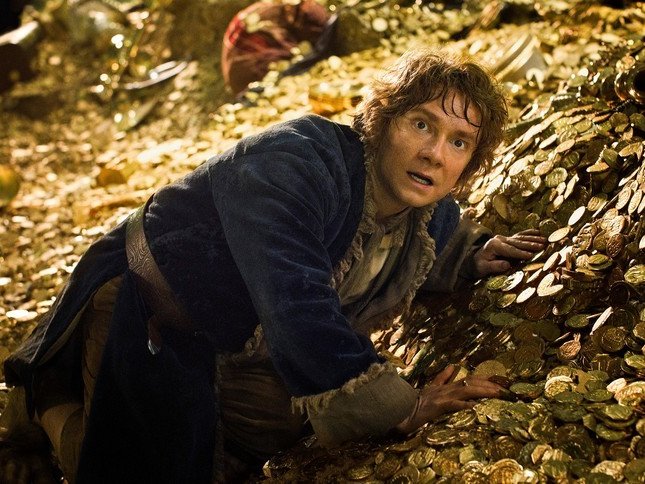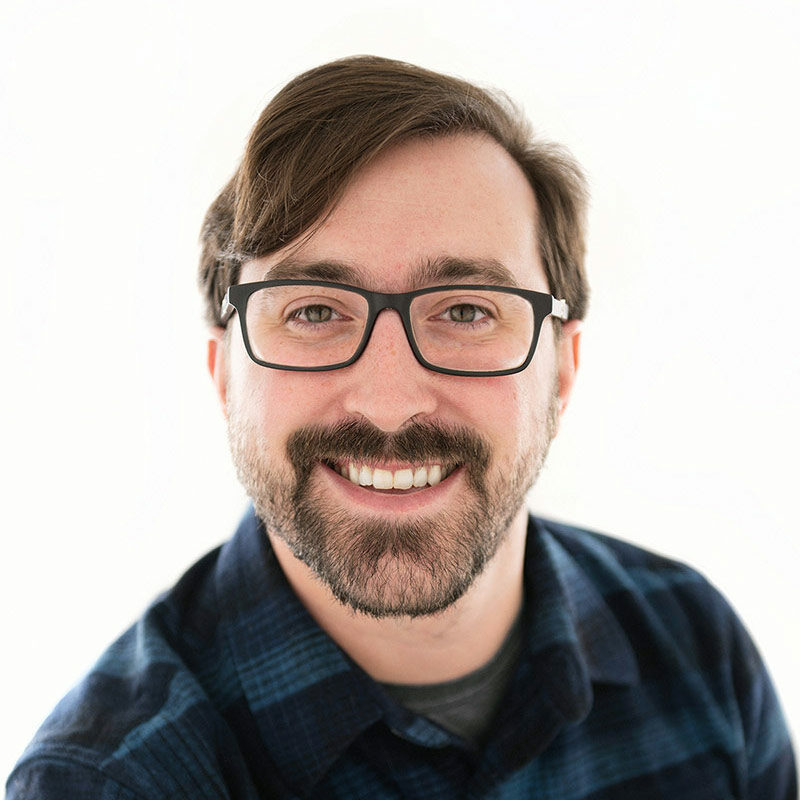Here's my problem: I can't figure out if "The Hobbit: The Desolation of Smaug" is a good movie.
I thrillingly squirmed when a herd of giant spiders attacked our tiny dwarf heroes. I was excited when Legolas rescued the dwarves and found creative new ways to introduce orcs to his arrows pointy end first. I marveled at Smaug the dragon when he slowly emerged from his pool of golden treasure like he was Scrooge McDuck's oversized lizard cousin. It's certainly an improvement on "An Unexpected Journey," a bloated three-hour preamble with the emphasis on "amble."
But despite all of its significant steps forward, I also feel strangely unaffected by "The Desolation of Smaug." For all of the movie's grandiose and bombastic spectacle, it's oddly unspectacular. It clears all of the benchmarks of a solid, entertaining fantasy blockbuster without ever really impressing. It's a big movie that leaves a surprisingly underwhelming impact.
A part of the problem is likely that "The Hobbit" films are coming after the "Lord of the Rings" trilogy, some of the most grounded, rich, exciting and simply overall successful movies this side of Y2K. Peter Jackson's ardent defenders will argue "The Hobbit" is a smaller, simpler adventure and therefore cannot be compared to its bigger brethren.
They're right on the first point; "The Hobbit" is a smaller story. However, it's the movie's fault for seemingly doing everything in its power to make this second go-around feel smaller as well. The story has been stretched from an already risky two films to a desperately overburdened three. Even the most epic story would seem slight having to do its best imitation of a Stretch Armstrong doll in a remake of "The Hitcher."
Jackson and his other three writers (Fran Walsh, Philippa Boyens and Guillermo del Toro) don't do "The Desolation of Smaug" any more favors by filling the story with needless callbacks and tie-ins that not only feel obviously like padding, but continually remind the audience of the other movies that did everything better than this one. If you don't want to be compared to your beloved older brother, "The Hobbit," you probably shouldn't wear his clothes. They're too large for you anyways, and everyone can tell you shoved some oranges up your sleeves to make you look bigger.
After a quick rainy flashback (featuring a blink-and-you'll-miss-him cameo from Peter Jackson), the film meets back up with the merry band of dwarves, led by the stoic Thorin Oakenshield (Richard Armitage). They're continuing on their quest to reclaim their homeland under the Lonely Mountain from the vicious, greedy dragon Smaug (voiced by Benedict Cumberbatch). The journey is treacherous, with orcs constantly in pursuit, and giant spiders and political rivals in their path.
Luckily, they gain the assistance of elfin fan favorite Legolas (Orlando Bloom) and his female counterpart Tauriel (Evangeline Lilly), a new character created exclusively for the film. She follows the crew on their quest because she has a small romance (pun not intended) brewing with Kili the dwarf. Legolas follows along because he has feelings for Tauriel. And we follow Legolas because he's really entertainingly good at using orcs for archery practice.
Meanwhile, their hobbit companion Bilbo (Martin Freeman) grows in confidence thanks to the mysterious ring he tricked away from Gollum in the first film's best sequence. The ring has great power – namely invisibility, a handy tool for a nimble burglar – but it also starts to quietly corrupt Bilbo. More on that in maybe the third film, though; this movie's mostly concerned with Benedict Cumberdragon, and finding new and creative ways to have Legolas and Tauriel decapitate orcs or turn them into squishy pin cushions.
For all of the story's unnecessary excesses, "The Desolation of Smaug" finally seems to begin the adventure the last film spent three hours teasing. The movie actually moves with some energy and momentum (however halting) this time, and when the big set piece moments hit, they're sufficiently rousing and tense.
The aforementioned spider sequence is a shudder-inducing thrill, allowing Jackson to indulge in the creepy gross-out tendencies of his early days, and their dwarves escape from the elfin prison, only to land in a literal barrel of trouble with an orc herd, is both exciting and playful. I'd say the action, especially a scene with a chaos-creating dwarf on a roll, is a barrel of fun, but then I'd hate myself.
The action does play by a familiar formula of "dwarves are in trouble; cue Legolas" – very similar to the first film's formula of "dwarves are in trouble; cue Gandolf" – but it never quite gets to the point of diminished returns.
Then there's the titular desolation of Smaug. Thanks to the film's cliffhanger cut-off point, the desolation doesn't make much of an appearance, but Smaug certainly does. Jackson gives him a fun, intense introduction, and if you're going to have a talking dragon in your movie (I'd prefer if you didn't, but whatever), having the mountain-shattering baritone of Benedict Cumberbatch to provide the voice is about as menacingly ideal as you can get.
The ensuing game of cat-and-mouse – first between Smaug and Bilbo, who's then joined by the rest of the dwarves – is a tensely crafted climax, and something "The Hobbit" series has been missing: something completely new. Even the films' best moments – Gollum, the orc battles, the spider sequence – recall things we've seen before. A battle of wits with a giant fire-breathing dragon in a massive tomb of gold, however, is a new thrill, and Jackson brings back a bit of the wonder and excitement.
Also lost in the hubbub about frame rates and unnecessary length are the impressive performances from McKellen and Freeman. McKellen further cements his legacy as the iconic image of Gandalf. He's warm, wry and a towering presence who also helps to ground the movie. His subplot here is fairly unnecessary, but he's always welcome company.
Freeman is good as well as the film's charming, increasingly brave hero. His performance fits nicely into the lighter tone of "The Hobbit" films, a satisfying mix of human drama and easy, put upon humor. He's delightfully amusing, trying to figure out what to do with himself as the sleeping Smaug slowly reveals himself. At the same measure, a scene at the end of the spider attack shows how vicious and corrupted he has quietly become due to the ring's power and influence.
Even with all of the big action set pieces, the way Freeman has been evolving the character of Bilbo over these films may actually be its most satisfying element.
Armitage is still compelling as the film's fiercely motivated Aragorn Lite, and though she's forced into a wimpy romance subplot, Evangeline Lilly is a nice addition. Then there's Bloom, who's not much an actor playing not much of a character. As an entertaining one-elf orc genocide, however, he gets the job done.
Even with all of that in its favor, there's an odd lack of impact to "The Desolation of Smaug." Much of that is thanks to Jackson's rampant use of CG (sad considering Jackson's career started and peaked with so much practical work). Part of what made the "Lord of the Rings" series so effective was the use of intricate practical effects. Combined with Jackson's world-building abilities, the fantastical world of Middle-earth and the battle raging throughout it felt like a real place.
Now, everything – from many of the environments to the orcs (especially the orcs; the White Orc in particular looks like a video game nemesis) – often look fake, taking away from any investment we have in this world or its dangers. Much like "Star Wars: Episode III," it's hard to be invested in a world where people fight pixels (handsomely crafted pixels, but still) in a universe made by pixels, especially since our first introduction into this world was so real and tactile.
It's a surprisingly weightless experience, especially with the High Frame Rate option. The technique is improved (it's upgraded from a really needless eyestrain to just merely a needless eyestrain), and it looks incredibly crisp and clean, but it's not worth the unnaturally fast movements that make it seem like the characters – and the camera – aren't connected to anything.
Plus, though it certainly moves faster and has more going on than the first film, the story feels desperately padded. An early interaction with Beorn, a shapeshifter, gets the movie off to a pointlessly sluggish start, and anything involving Gandolf (Ian McKellen) and his investigation into the return of Sauron feels beside the point.
In the end, "The Desolation of Smaug" delivers both too much and too little … and yet despite that, I still found myself solidly entertained (it's not escaping this review without a recommendation). It feels like an appetizer trying to pass itself off as a main course by packing on extra garnishes and getting served on a big silver platter. And as that, it's a pretty tasty, enjoyable appetizer, but I can't help feeling I should've gotten more. It's just hard to forget about the movies that came before and even harder to forget what these "Hobbit" movies were supposed to be.
As much as it is a gigantic cliché to say that one has always had a passion for film, Matt Mueller has always had a passion for film. Whether it was bringing in the latest movie reviews for his first grade show-and-tell or writing film reviews for the St. Norbert College Times as a high school student, Matt is way too obsessed with movies for his own good.
When he's not writing about the latest blockbuster or talking much too glowingly about "Piranha 3D," Matt can probably be found watching literally any sport (minus cricket) or working at - get this - a local movie theater. Or watching a movie. Yeah, he's probably watching a movie.







